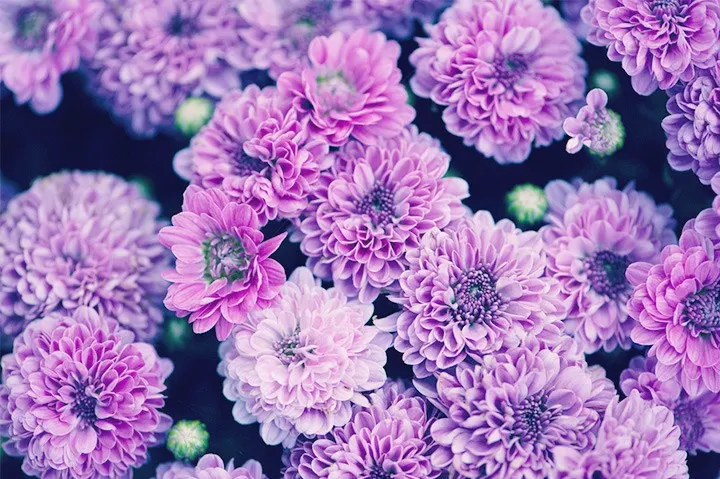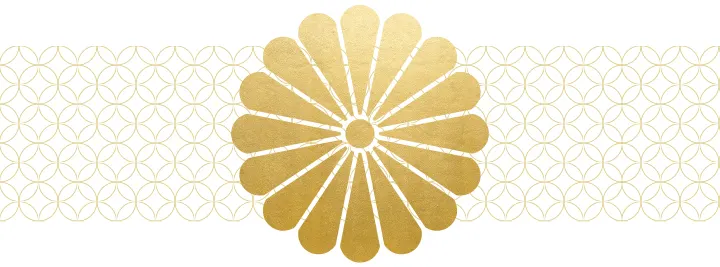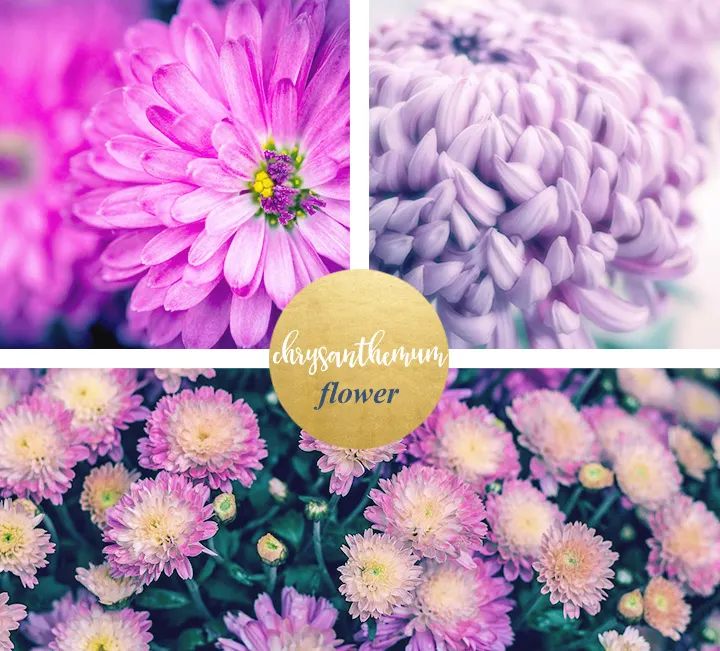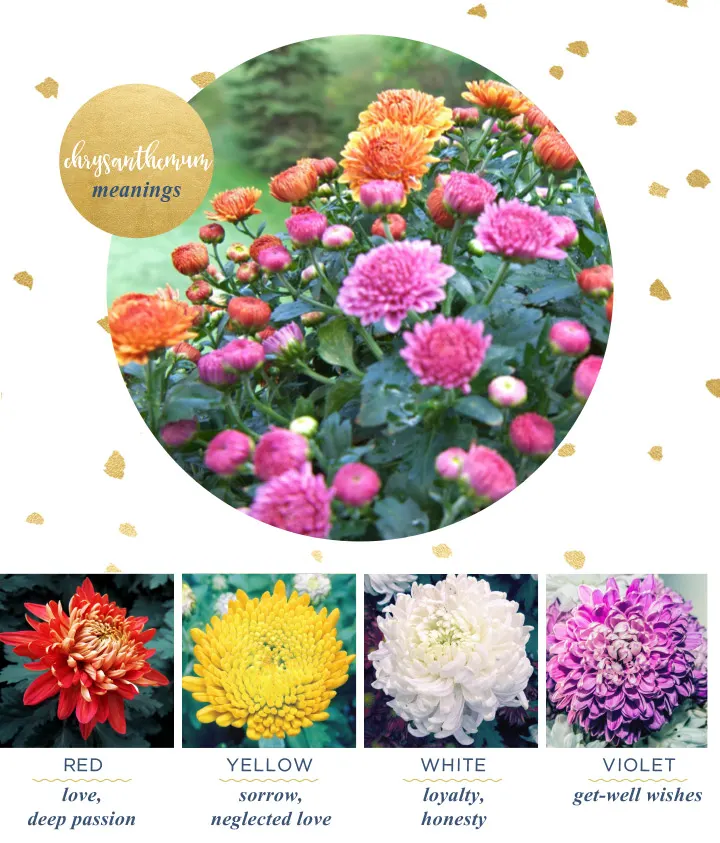July 16, 2016
Chrysanthemum Meaning and Symbolism
The first chrysanthemums were cultivated in China centuries ago. It has appeared in ancient Chinese writings as early as 15th century BC and was used as an herbal remedy. Its boiled roots were believed to provide headache relief, and the sprouts and petals were eaten in salads. The Chinese city of Chu-Hsien was named after the chrysanthemum and literally means “Chrysanthemum City.”
From China, the chrysanthemum made its way over to Japan by Buddhist monks in AD 400. Soon after its introduction, the Japanese were so enamored by this beautiful flower that it was soon adopted as the emperor’s crest and official seal. “Kiku” is the Japanese name for chrysanthemum and every year there is a National Chrysanthemum Day which is also referred to as the Festival of Happiness.
In the 17th century, the chrysanthemum was introduced to Europe where Karl Linnaeus, the father of modern taxonomy, coined the Western name “chrysanthemum.” The name is derived from the Greek words “chrysos” meaning gold, and “anthemon” meaning flower. Today they are also commonly referred to as “mums.”
Chrysanthemum Meanings
Since the flower blooms in the fall, the chrysanthemum signifies joy and beauty despite the oncoming winter. Although beautiful, chrysanthemums hold various meanings across different time periods and cultures, both positive and negative.
Victorians used chrysanthemums to show friendship and well-wishing.
Buddhists use the chrysanthemum as offerings due to their powerful Yang energy.
In China, the chrysanthemum is traditionally offered to the elderly as they symbolize long life as well as good luck in the home.
In Australia, chrysanthemums are the official flower for Mother’s Day due to their nickname “mums.”
In Belgium and Austria, the chrysanthemum is used almost exclusively as a memorial flower to honor loved ones and is the flower of choice for placing on graves.
Chrysanthemum Symbolism & Colors
Chrysanthemums generally symbolize longevity, fidelity, joy and optimism. Various colors symbolize other important meanings as well.
Red chrysanthemums symbolize love and deep passion.
Yellow chrysanthemums symbolize neglected love or sorrow.
White chrysanthemums symbolize loyalty and honesty.
Violet chrysanthemums symbolize a wish to get well.
Chrysanthemum Cultural Significance
Since the chrysanthemum was first cultivated in China, the flower still holds deep cultural significance to this day, especially in art. The chrysanthemum is one of the Four Gentlemen, which also includes the plum blossom, the orchid, and bamboo. These are the four main plants depicted in traditional Chinese watercolor paintings, and are derived from Confucianism.
In Japan, the official seal for the Imperial family is a chrysanthemum with 16 petals and is used for official government documents. In the military, the Supreme Order of the Chrysanthemum is the most prestigious honor that can be awarded by the Emperor.
Chrysanthemum Facts
The chrysanthemum is the official birth flower of November.
In the United States, the chrysanthemum is the largest commercially produced flower and is known as the “Queen of Fall Flowers.”
The chrysanthemum head is actually a cluster of many small flower heads.
The chrysanthemum belongs to the Asteraceae family which is the largest family of flowering plants and includes over 23,000 species.
Chrysanthemum Uses
Chrysanthemums have long been used for their medicinal properties. Drinking chrysanthemum flower tea and taking chrysanthemum vitamins or supplements can provide a multitude of health benefits. These benefits include: treating chest pain, reducing high blood pressure, treating diabetes, reducing fever, being an anti-inflammatory agent, and alleviating headaches.
In addition to medicine, the chrysanthemum is used in as an essential ingredient in Chinese cooking. The leaves are used as greens in many sautéed dishes, soups, and salads and the delicate petals are brewed into tea.
In the United States, the yellow and orange varieties are the most popular bedding plants used in landscaping.
Chrysanthemum cinerariaefolium is used as a powerful ingredient in insecticides. The active ingredient found in the flower heads is called pyrethrum, and is a toxic compound that causes paralysis in insects.
Resources
www.flowermeaning.com | www.nybg.org | www.mums.org | www.theflowerexpert.com | www.theworldofchinese.com | www.symbolic-meanings.com | www.vegetablegardener.com | www.webmd.com





